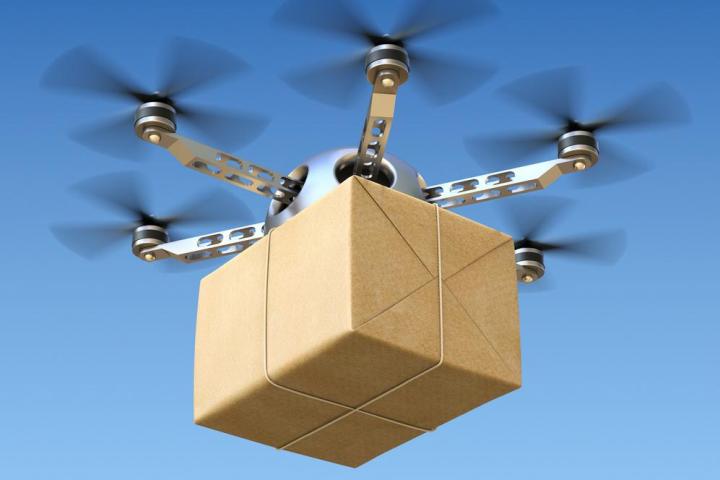
Speaking at an air traffic control conference in D.C. on Monday, David Vos said the Mountain View company’s goal was to have a commercial drone-based delivery business “up and running in 2017.”
Similar delivery initiatives are also being planned by Amazon and Walmart, a prospect that could make for some busy, not to say noisy, skies in the coming years.
Project Wing
Project Wing first hit the headlines in 2014 when Google showed off footage of a remotely controlled flying machine that was part copter and part plane. However, the design team returned to the drawing board earlier this year after concluding a fresh approach was required.
After several months of hearing next to nothing about its drone plans, a second Project Wing machine buzzed out of the workshop a couple of weeks ago. There’s a short video of it here.
Besides delivering goods to customers – possibly as part of Google’s existing Express service – the company is also keen to use the technology to carry vital supplies to people stranded in areas hit by disasters.
Vos’s 2017 goal appears to reflect a rather optimistic view of the Federal Aviation Administration (FAA), which is still working on a set of regulations for commercial drone use. The FAA has come under fire for its perceived slow response to the fast emerging technology, with many companies urging the agency to avoid implementing overly harsh rules that could stifle not only drone use in a commercial setting, but also related R&D projects.
Project Wing’s Vos is a member of the recently announced task force charged with helping the FAA and the Department of Transportation create a registry for U.S.-based drone owners, both hobbyists and commercial operators.
“We’re pretty much on a campaign here, working with the FAA, working with the small UAV community and the aviation community at large, to move things along,” Vos said at the conference on Monday.
According to Reuters, Vos sees the registry, which could be launched next month, as another step toward the creation of an air traffic control system for drones to help maintain order in the skies. Work on such a system is already under way.
While the idea of drone-based deliveries may still sound to some like an unrealistic ambition, an increasing number of big-name firms have put their weight behind relevant initiatives in a determined bid to drive the idea forward, suggesting Google could yet hit its 2017 target date.

